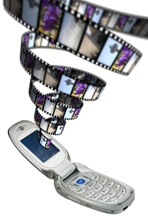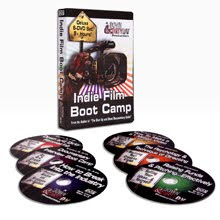 Just wanted to drop a quick note to let you know about an event coming up this Friday, May 2nd sponsored by DCTV and Shooting People. If you are a docmaker in NYC you need to drag your butt out of the house and attend this event.
Just wanted to drop a quick note to let you know about an event coming up this Friday, May 2nd sponsored by DCTV and Shooting People. If you are a docmaker in NYC you need to drag your butt out of the house and attend this event.DCTV (Downtown Community Television) is a unique filmmaking institution wholey dedicated to the mission of fostering affordable filmmaking equipment, training, and resources to filmmakers throughout New York City.
DCTV is essentially a community-based non-profit film school for people who can't afford film school. They offer a long list of classes, workshops, seminars, and even production and editing services for documentary filmmakers. They also have some free filmmaking programs that serve inner-city teens and well as the handicapped. (Yours truly gave a book tour kick-off seminar there back in February.)
It was founded and run by Emmy-Award winning veteran doc filmmaker, Jon Alpert, (Bagdad E.R., Off to War, etc.) and as far as I'm concerned, it's probably the most-down-to-earth place for filmmakers and networking in the city. These guys (and gals) really care about filmmaking and serving our indie community and they've been at it longer than I've even been in the game.
The event is titled Documentary Filmmaker's Lounge and in typical DCTV fashion, it's free and open to the public. Not only that, but there's an open bar, free food on the grill, plus a raffle and give-aways.

Everytime I go to a DCTV event I always meet cool motivated like-minded indie filmmakers, some of which have become regular collaborators in recent years. The energy in that place is great. Needless to say, I will be there in-person this Friday. So holla at your boy if you come through! See you there!
Presented by DCTV & Shooting People
Friday, May 2nd @ 5:00PM-7:30PM
Location: DCTV (87 Lafayette St., NYC)
















